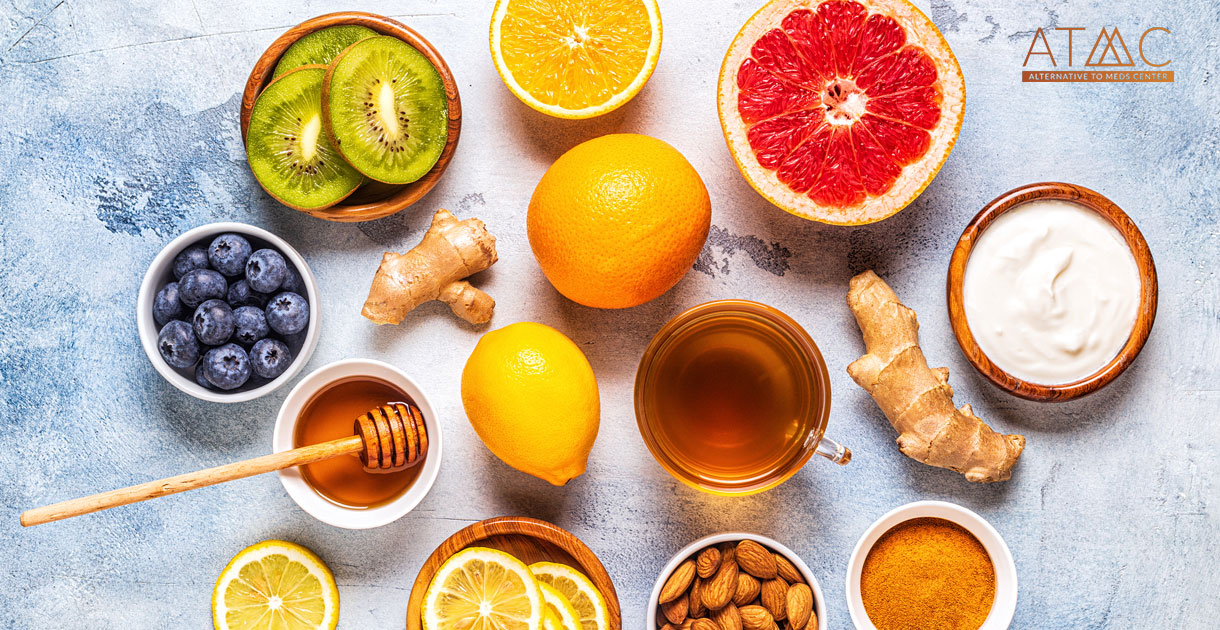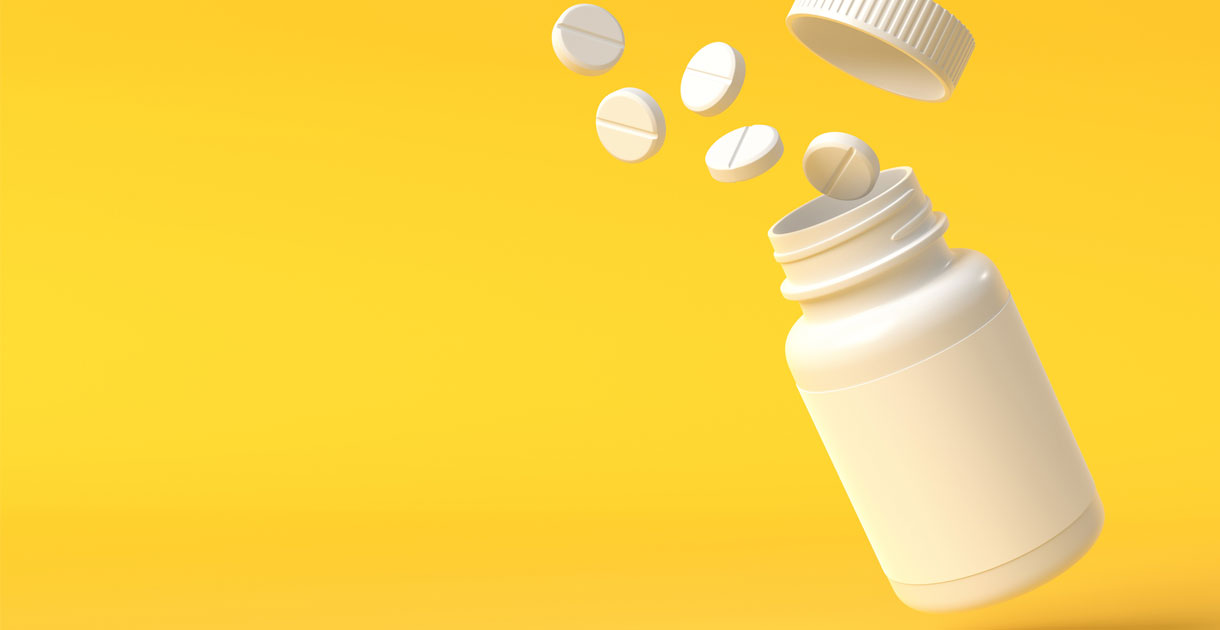
Nutrition and Detoxification From Prescription Medication
Photo from Getty Images
Originally Posted On: https://www.alternativetomeds.com/blog/nutrition-detox-prescription-meds/
Modern medicine frequently assumes prescription medication is the primary solution to physical and mental ailments. Your doctor often prescribes medicine as a means of helping you manage chronic pain and disease. While prescription medicines have their place in medical treatment and prevention, they appear to have limitations on how well they help you manage chronic health issues. The limits of prescription drugs are especially true when long-term nutrition is studied.
If you have spent years taking one or more prescription medicines, you may have nutrient depletion. We want you to know that prescription medications are not the only way for you to manage your chronic health issues. If you are wondering if there is a better alternative to dependency on prescription medications, then this is the article for you.
We believe in the power of healing the body by prioritizing healthy practices, one of which is building a diet that focuses on quality nutrition. If you dream of a life far less dependent on medication, you should consider having a discussion with your prescriber about cutting back on your medication while focusing on clean eating. If you wish to free yourself from needing prescription medicine, holistic detoxification is a great way to accomplish this.
Using Nutrition to Live a Healthier Life
Your holistic detox will require you to understand how your medication is impacting your nutrition so that you can plan to fill your diet with foods that contain nutrients with natural healing properties. Therefore, it is essential to understand the connection between nutrition and prescribed medication for you to detox from medication dependency.
The Problem with Prescription Drugs
Doctors, psychiatrists, and other healthcare professionals prescribe medications to help people improve some aspects of their physical or mental health. Medications are often seen as inherently safe to use, but most prescription medications also have harmful side effects. The long-term use of prescription medications can also lead to additional health issues. Prescription drugs can also be highly addictive, leading people to accidental dependence as well as recreational misuse over time.
Prescription Medications Influence Nutrient Requirements
 Photo from Getty Images
Photo from Getty Images
Prescription medications can impact the nutrient levels present in the body as well as how the body processes nutrients. Long-term use of prescription medications can lead to deficiencies of essential vitamins and minerals in the body, referred to as a drug-nutrient interaction.1 More specifically, a drug-nutrient interaction refers to any physical, chemical, physiologic, or pathophysiologic response between a drug and a nutrient.2
Don’t be afraid to talk in-depth with your medical doctor about the potential drug-nutrient interactions you may encounter from the medication you are currently taking. This information is necessary for you to begin holistic detoxification safely.
How Does Nutrition Affect Your Medication?
Your doctor or pharmacist should advise you about potential drug-nutrient reactions between the foods you consume and the prescription medications they place you on to treat your condition.3 The food you consume can have a tremendous impact on the medications you’re currently taking. The foods in your diet can cause your medication to work slower or faster than needed. Some medicines even interact with food, preventing your medication from ever working at all.
Which Medications Deplete Nutrients?
All medications slowly deplete your body of essential nutrients over time, a fact that should be concerning to anyone who takes prescription medicine long-term. If you already lack nutrients in your body from a poor diet, you can face increased risks of deficiencies if you also need to take prescription medication.
You should know which types of medications deplete nutrients so that you can begin to supplement your diet with the foods that will help restore your body to balance. This knowledge will help you prevent nutrient depletion as you start to detox or taper down your use of prescription medication.
The following classes of medications are the top 5 types reported to deplete your body of needed nutrients with long-term use. Please understand that this list is not exhaustive, as chronic diseases like heart disease, cancer, diabetes, stroke, and arthritis also require prescription medications that deplete nutrients in the body over time.
Proton Pump Inhibitors (PPI)
- Omeprazole (Prilosec)
- Esomeprazole (Nexium)
- Pantoprazole (Protonix)
Proton pump inhibitors are medications that lower the amount of acid produced in the stomach and are used to treat the symptoms common in acid reflux and gastroesophageal reflux disease (GERD). These drugs specifically deplete the body of nutrients vitamin B12, vitamin C, calcium, iron, and magnesium.4
Opioids
- Oxycodone
- Hydrocodone
- Morphine
- Hydromorphone
Opioid use depletes the body of folic acid, vitamin C, potassium, and iron.
Psychotropic Medications
- Antidepressants (Paxil, Nortriptyline, Prozac, Buspar, Bupropion, etc.)
- Antipsychotics (Lithium, Quetiapine, Abilify, Clozapine, etc.)
Medications prescribed to help people manage psychological disorders cause the body to have depleted levels of niacin, vitamin D, calcium, coenzyme Q10, and folate.
Antibiotics
- Amoxicillin
- Cephalexin
- Azithromycin
- Doxycycline
- Vancomycin
Antibiotic medications deplete the body of nutrients including calcium, magnesium, and potassium. B vitamins (B1-thiamin, B2- riboflavin, B3-niacin, B5-pantothenic acid, B6, B9-folic acid, B12) and vitamin K become depleted as well.
Blood Pressure Medications
- Furosemide
- HCTZ
- Spironolactone
Medications that lower blood pressure typically deplete the body of magnesium, sodium, potassium, zinc, pyridoxine, thiamine, and ascorbic acid with prolonged use.
Arming yourself with knowledge about the classes of medications of drugs and the types of nutrients they deplete gives you a roadmap for supplemental nutrition. You can use this information on your journey to treat health issues as you go through your holistic detox.
Do Antidepressants Make Nutrient Deficiencies Worse?
 Photo from Getty Images
Photo from Getty Images
Many major antidepressant medications deplete the body of nutrients. Since many people suffering from depressive disorders are already low on essential nutrients (niacin, vitamin D, calcium, coenzyme Q10, and folate), taking antidepressant medication can further rob the body of these components that it needs to function optimally.
People clinically diagnosed with depressive disorders require supplementing these lost nutrients to maintain their mental and physical well-being. Addressing dietary deficiencies via nutrition can aid in managing these mental health disorders. A diet based primarily on fresh, whole, nutrient-rich foods help efforts to nourish the mind and body of those struggling to cope with depressive disorders.
Foods recommended for nutrient deficiencies in depression
- whole grains
- oysters
- beef, chicken, and pork
- beans
- nuts and pumpkin seeds
- dark leafy vegetables
- fruit and fruit juices
- eggs
- organ meats (liver, kidney, etc.)
- cold-water fish, such as salmon, sardines, tuna, and mackerel
- cold-water fish, such as salmon, sardines, tuna, and mackerel
This list of foods contains the 12 key types of antidepressant nutrients that can help prevent and treat depressive disorders. This list includes iron, folate, long-chain omega-3 fatty acids (EPA and DHA), selenium, zinc, magnesium, thiamine, vitamin A, potassium, vitamins B6 & B12, and vitamin C.
It is also important to incorporate foods that contain antioxidants into an antidepressant-focused nutrition plan. Antioxidants help your body eliminate free radicals, which are the waste products that can build up internally due to natural body processes.
When significant amounts of free radicals build up in the body, oxidative stress occurs, resulting in several health problems that can include the development of mental disorders like anxiety and depression.5 Consuming vitamins that provide your body with antioxidants may reduce any symptoms you have related to anxiety or generalized anxiety disorder.
Nutrients from plant-based foods, like berries, are excellent sources of antioxidants.6 If your nutrition plan focuses on fresh fruits and vegetables, soy, and other plant-based foods, it may aid in reducing the stress-related symptoms of your depression.
Does Nutrition Aid in Detoxification From Prescription Medications?
Fueling your body with nutrient-rich foods can help you naturally manage chronic pain and disease, and cope with the symptoms of depressive disorders. A detox-focused nutrition plan should be based on incorporating a variety of foods that supply key nutrients to your body. This type of nutrition plan can maximize the effectiveness of detoxification and should be used as your first line of defense as you proceed with your plans to rid yourself of prescription drug dependency.7
Your body works hard to combat the effects of absorbing potentially harmful chemicals in the air, water, processed foods, fuels, hygiene products, dry cleaning products, and plastics it comes into contact with. When you add the effects of nutrient depletion from the use of prescription medication, you can have a body that is primed for stress, and further health complications.
Detoxification and Nutrition as an Alternative to Using Prescribed Medication
Holistic detoxification is beneficial in helping you through recovery and healing the body from the enormous quantities of toxins encountered in the environment. A holistic detox revolves around a more comprehensive form of detoxification that incorporates more extensive health goals than the standard detox you may know. We emphasize detoxification, which is slow and gradual. Detoxification through gradual means saves you from experiencing acute withdrawal symptoms that can cause a seizure, stroke, or death if you abruptly stop taking medication.
Using Nutrition to Live a More Healthful Life
 Photo from Getty Images
Photo from Getty Images
Adequate nutrition plays a vital role in your ability to prevent and treat disease.8 Knowing basic nutrition facts increases your understanding of potential nutrition-based interventions for chronic disease. Now that you understand the links between nutrition and prescribed medications, you can advocate for a nutrition-based disease management solution that will not deplete your body of proper nourishment. To live a more healthful life, focus on developing a quality nutrition plan filled with the essential nutrients your body needs to run at its best.
